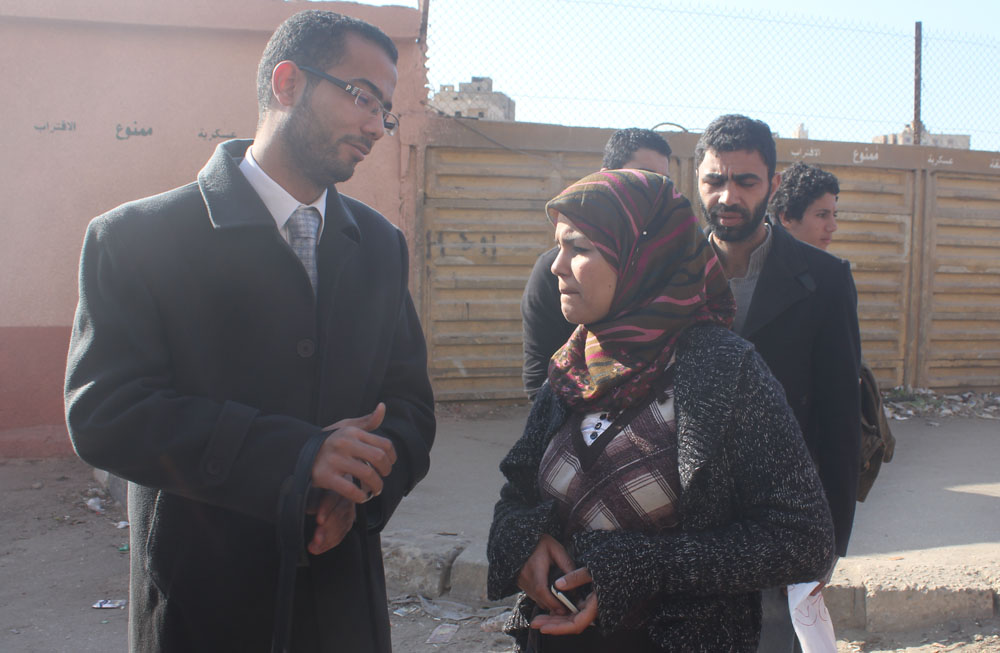Last week, the Tunisian documentary “National Hymen” was screened at the Rawabet Theater in downtown Cairo, attracting hundreds of audience members and stirring controversy.
Many were surprised to discover a film about virginity, sexuality and women’s rights being screened in Cairo. Others, meanwhile, felt it only natural that previously taboo topics should be discussed more openly after the revolution.
The issue of virginity has been widely debated in Egypt since activists accused the military of conducting virginity tests on female protesters arrested in Tahrir Square on 9 March.
“This is indeed a timely event,” said Tarek Mostafa, the coordinator of Nazra for Feminist Studies, the women’s rights organization that hosted the screening.
“It’s the right time to discuss how cultural values affect attitudes and beliefs about virginity and hence pressure females to undergo hymen reconstruction surgery,” he added.
In “National Hymen", Belgian-Tunisian director Jamel Mokni showcases interviews he conducted with various groups in Tunisia, including women who lost their virginity, a hymen reconstruction surgeon, young people, activists and intellectuals, offering a multitude of perspectives on the topic. Although documentaries tackling sensitive topics often blur the faces of their interviewees, Mokni chose not to, helping viewers relate better to these women and their experiences.
The one-hour documentary walks viewers through the reasons behind hymen surgery becoming more common in Tunisia. As the age of marriage rises, more young people are engaging in premarital relationships, yet only women suffer the consequences. They know that they would be judged and their reputation tainted should it become known that they had lost their virginity before marriage.
In one scene, Mokni shows how Tunisian society has come to view the issue over time. We start by seeing young Tunisians from earlier generations in black and white discussing the issue; then Mokni moves us to common debates in modern-day Tunisia. Interestingly, earlier generations seemed to have had a more relaxed attitude toward the issue of virginity.
The film highlights how society treats non-virgins with double standards. Women are rarely forgiven if they lose their virginity and are held responsible for the “family’s honor”. The social shame they experience drives many to have hymen reconstruction surgery. Men having sex before marriage, however, never ruin a family’s reputation.
“National Hymen” also pays tribute to Tahar Haddad, a Tunisian scholar who defended women's rights in the early twentieth century and was vehemently attacked by society. This is an attempt at reminding viewers of the fate of people who explore taboos and defend women rights in relatively conservative societies.
Mokni, famous for tackling delicate issues, first screened “National Hymen” in Theatro, a Tunisian cultural center, then in Belgium and France. The Carthage Film Festival in Tunisia, however, refused to show the film on grounds of its controversy.
The Cairo audience was divided in its response, with many lauding the film and Nazra’s decision to screen it. Others, meanwhile, believe that “National Hymen” negatively portrays Islam.
Asked why there were no Islamic scholars amongst the interviewees, Mokni responded that “National Hymen” isn’t against Islam and that prominent Islamic thinker Olfa Youssef was amongst the speakers in the film.
“We’re just not used to seeing female Islamic scholars or hearing progressive Islamic interpretations,” Mokni explained.
Mokni added that his interest in tackling this topic stems from his belief in love as a human right and that people should not interfere with others’ love lives.
“Society has become overtly obsessed with virginity, and it is women who particularly suffer from this,” he added.
Despite his obvious position on the issue, Mokni manages to tackle the subject without being overly provocative or imposing a specific ideology. The film is certainly thought-provoking, stirring much discussion following the screening in Cairo, an indication of success on the part of Mokni.
Nazra will be rescreening “National Hymen” in July 2011



